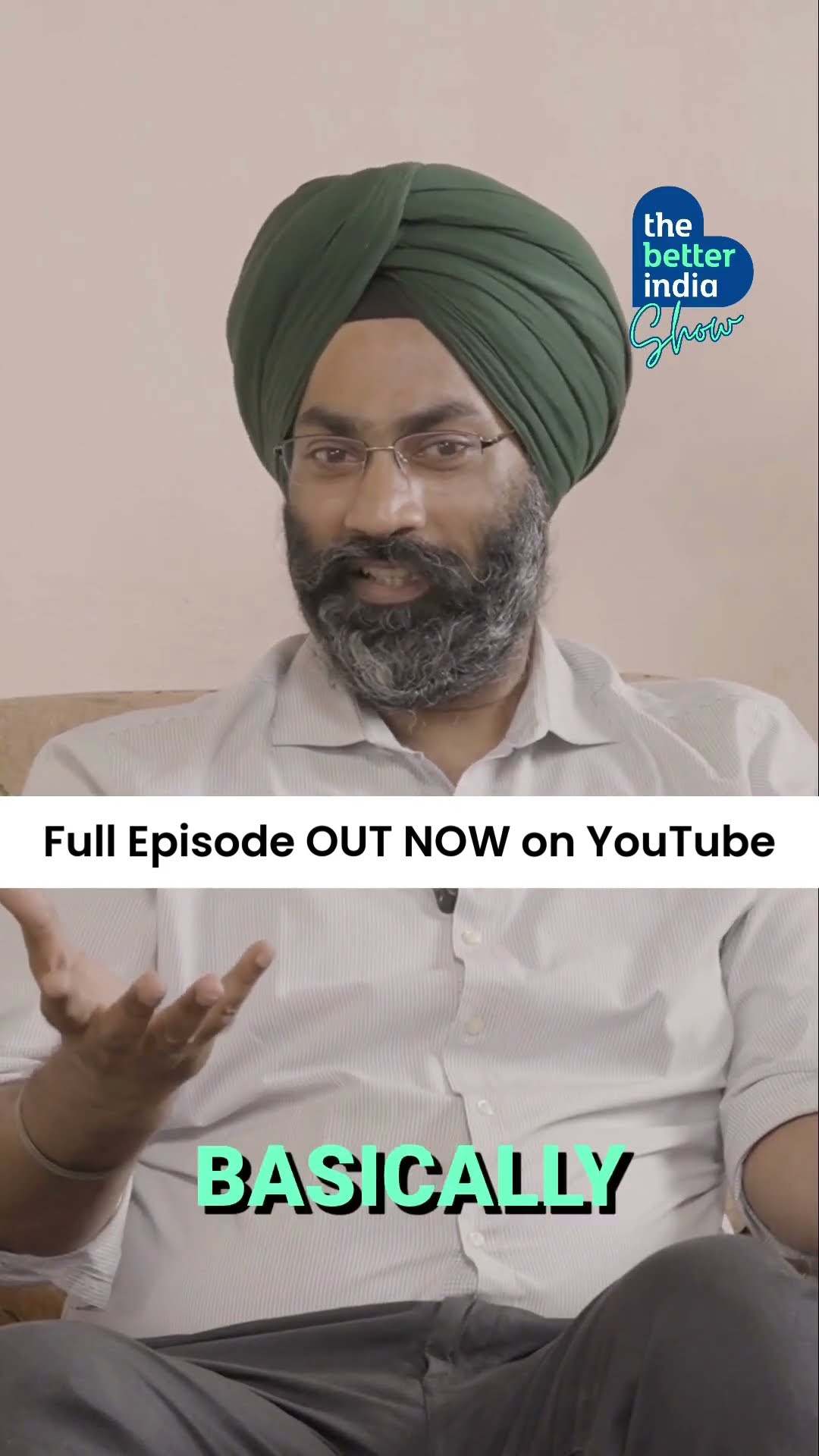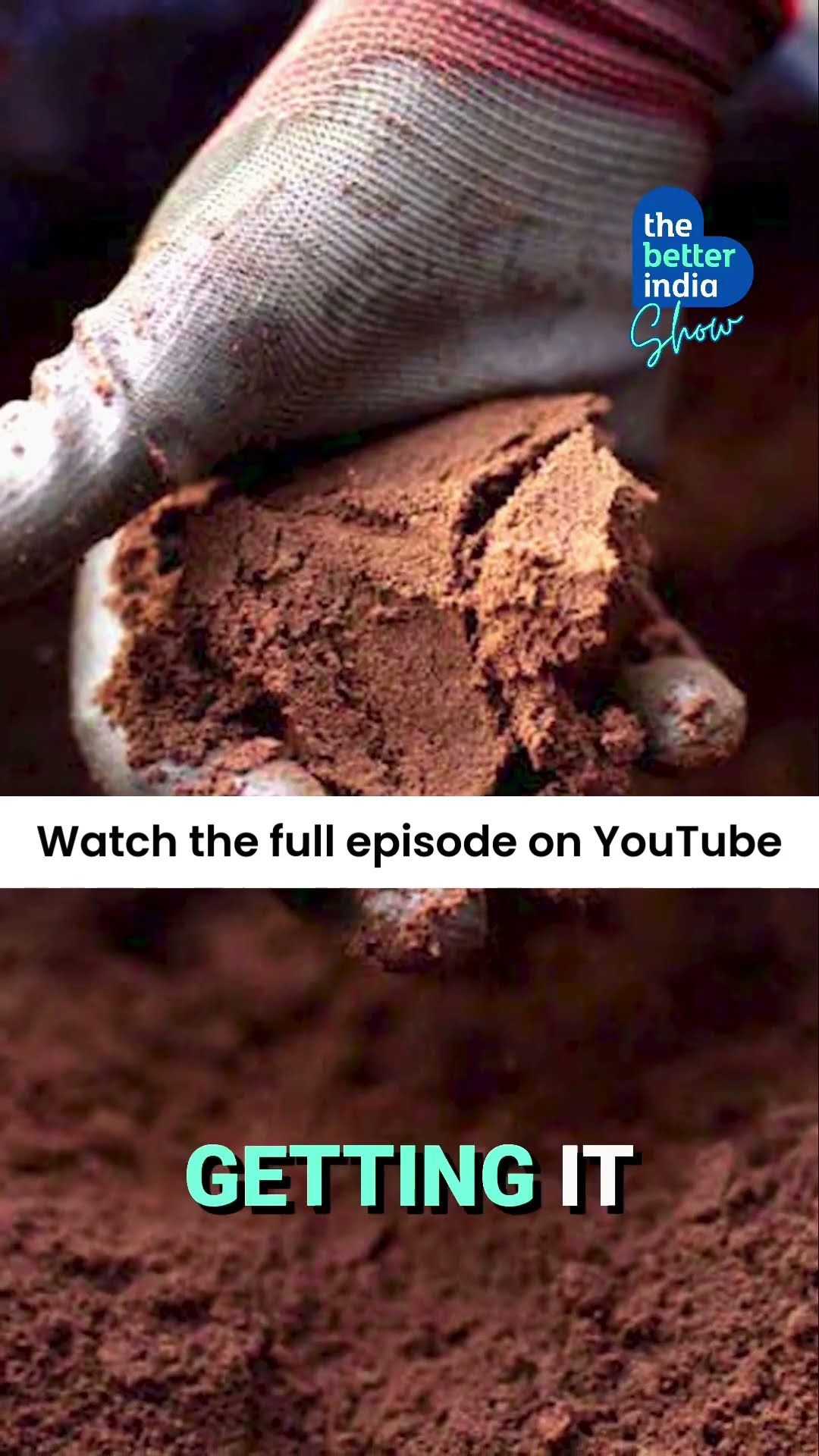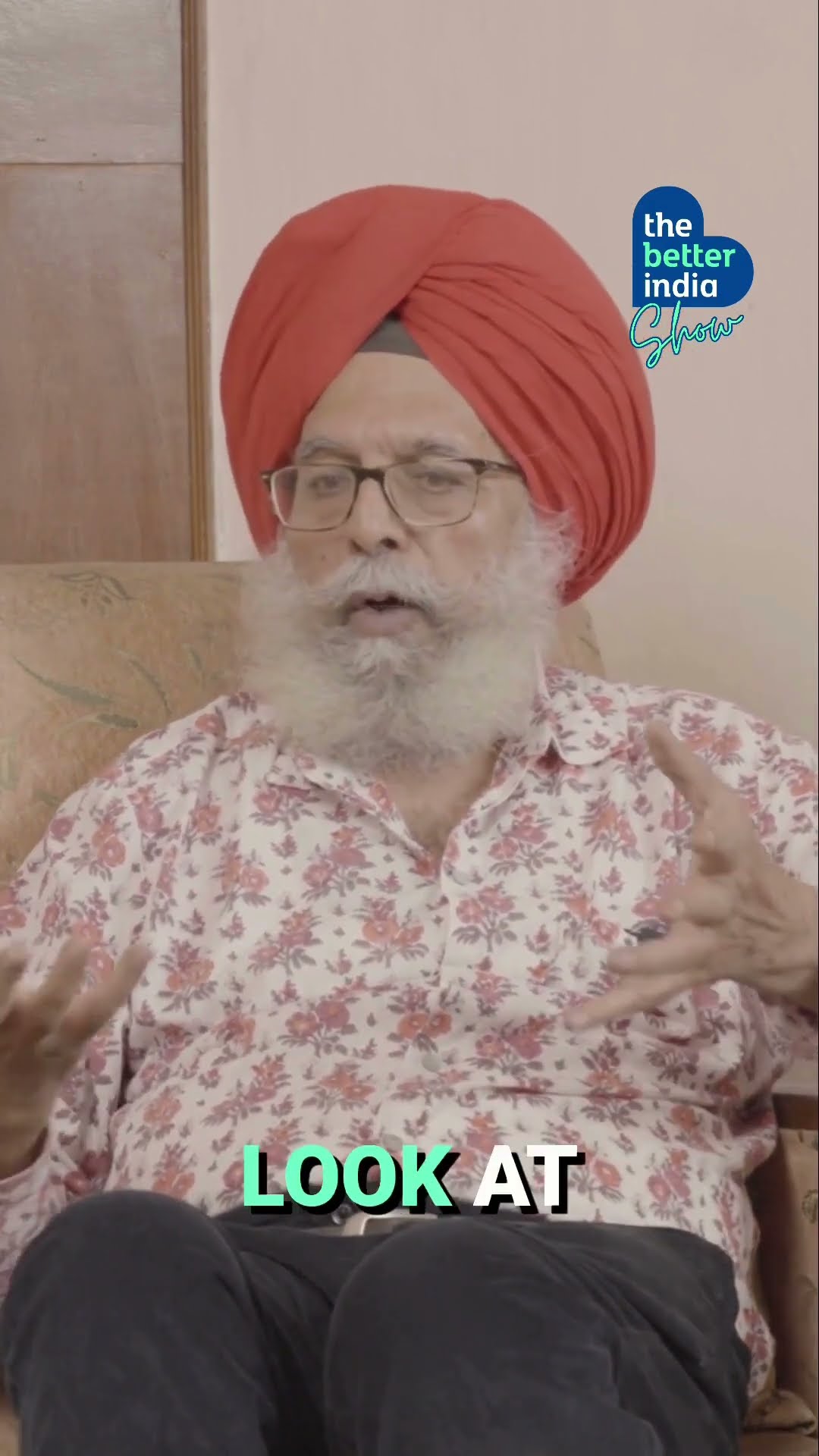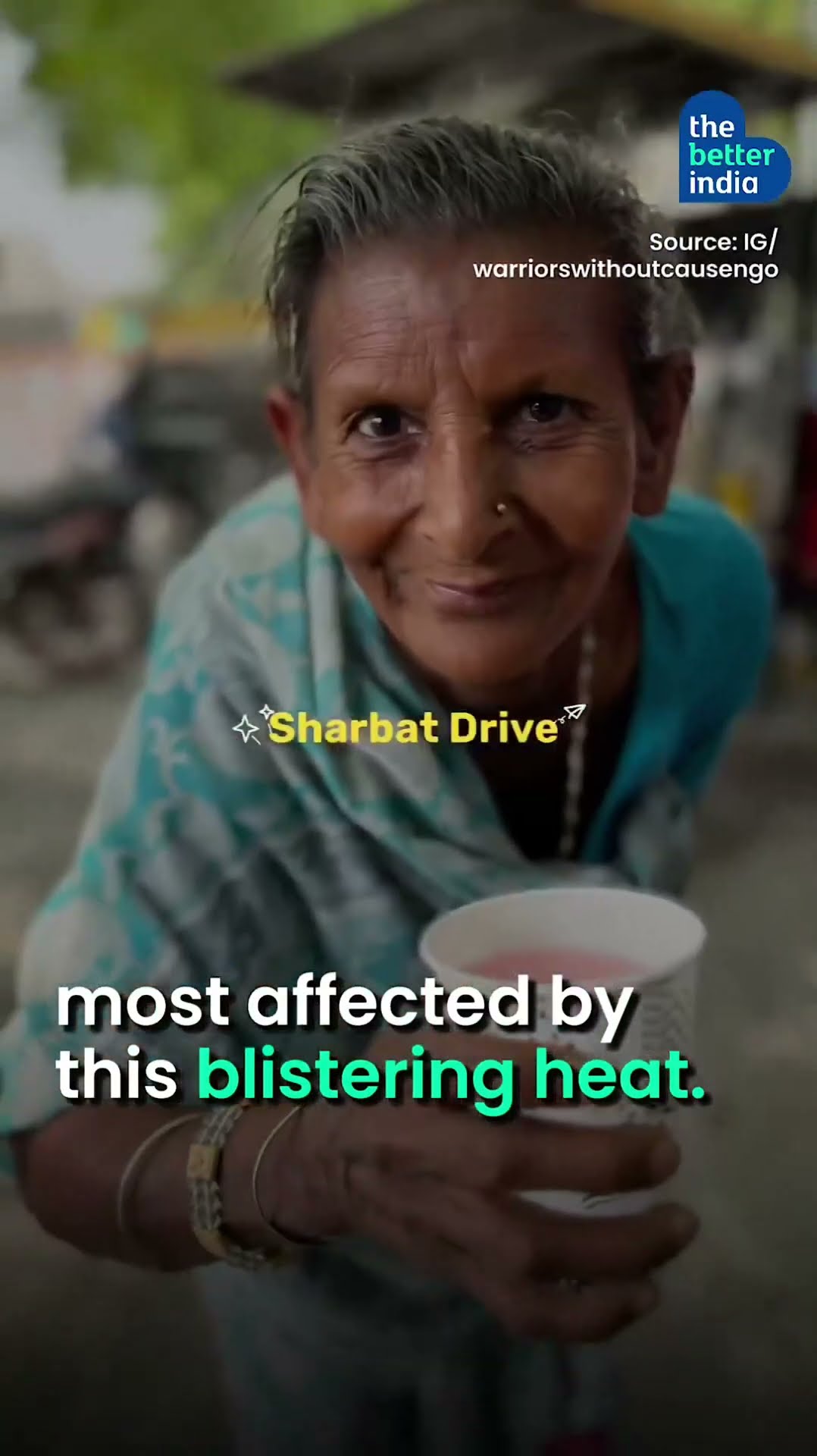Doctor Uses Grandpa’s Secrets to Grow Fruits & Veggies on Terrace; Has Helped 5000 People Learn
Dr Naveen Kumar from Chennai is on a mission to combat health issues caused by adulterated food. For this, he encourages his patients to grow their own food using organic farming. He cultivates native seeds on his terrace and distributes them to patients and others, motivating them to grow fruits and vegetables at home.
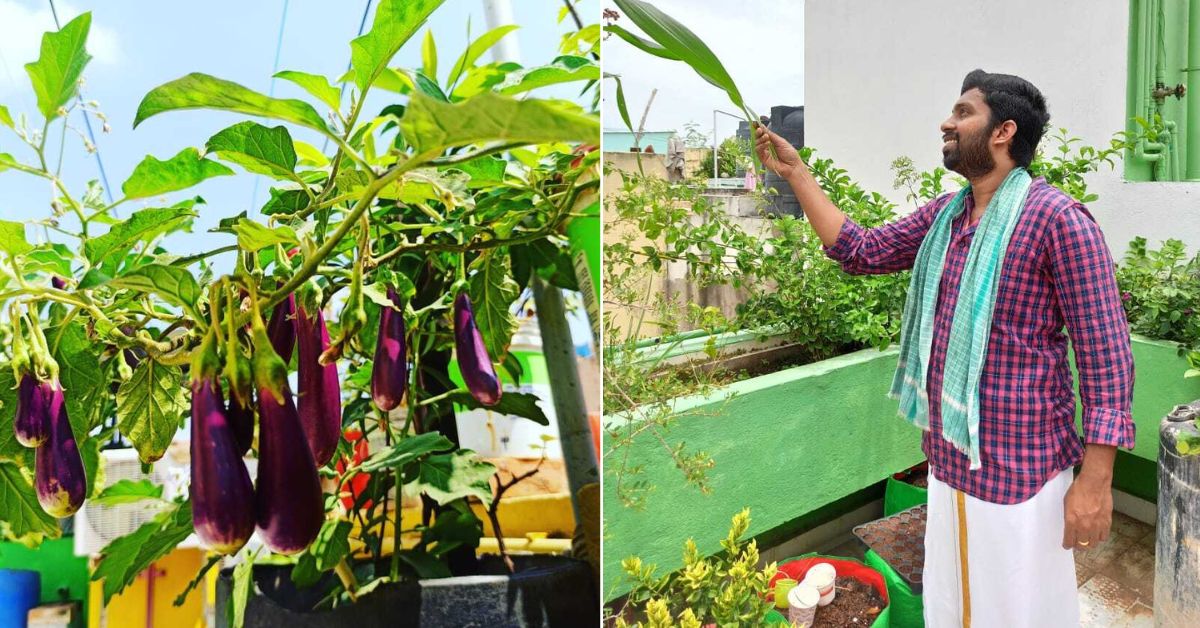
Playing with mud, splashing water on plants, and picking fresh produce from their terrace garden are some of the childhood memories that Dr Naveen Kumar treasures. Growing vegetables was merely a fun hobby for the Chennai resident until 2016 when he became a physiotherapy doctor.
“I would get several patients who complained of gastrointestinal issues. The underlying cause of such rising issues is the consumption of adulterated food that is prepared using genetically modified seeds,” Dr Naveen tells The Better India.
“The market is flooded with genetically modified seeds which negatively affect human health. There have been concerns that the food prepared using such seeds has carcinogenic properties and could lead to the development of cancer,” he adds.
Since 2016, Dr Naveen was eager to encourage residents to take up organic farming at home. In the past 10 years, the 29-year-old has transformed his 350 sq ft terrace into a green haven. Using his thatha’s (grandfather) best gardening secrets, he currently grows more than 250 varieties of fruits and vegetables — including spinach, tomatoes, brinjals, custard apple, lemons, mulberries, and dragon fruits in a small space.
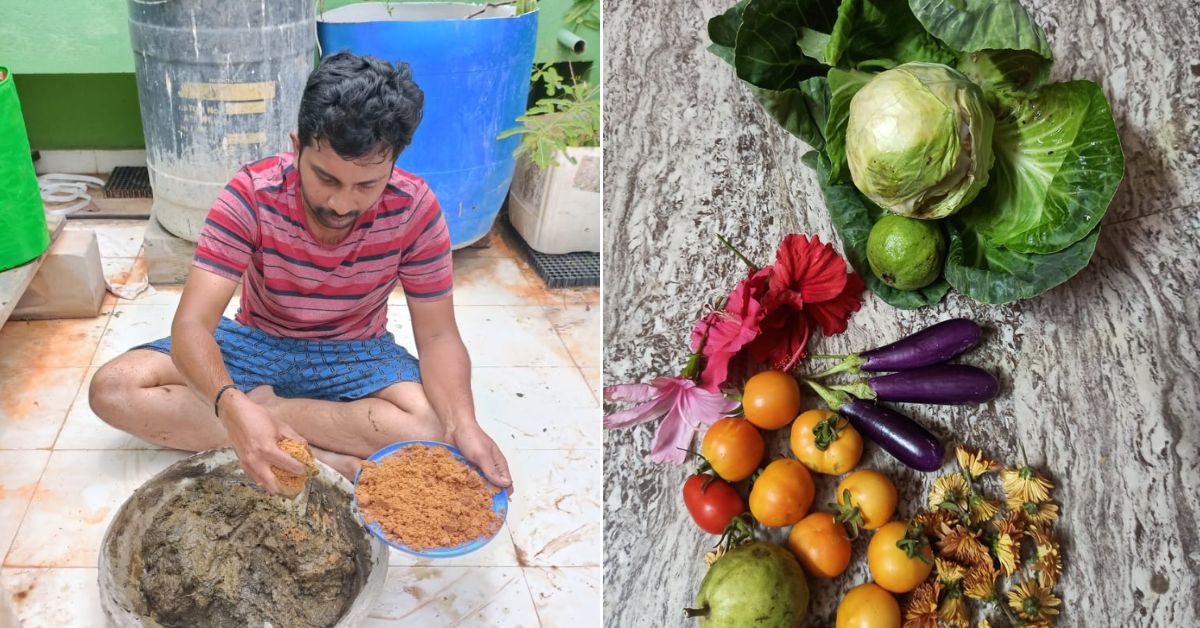
Prescription for a long healthy life
Since his childhood, Naveen grew up surrounded by vegetables and fruit trees that were nurtured using native seeds. However, growing up he understood that these seeds were fast disappearing due to modernisation and hunger for harvesting more produce in less time.
“Today, we see only green-coloured ladyfingers in the market when there are several native variants including the red-coloured torpedo shaped variety and light green-coloured long elephant tusk variety that has more amount of amino acids and iron content. Similarly, we get only hybrid tomatoes even though we have more than 200 native tomato varieties with distinct tastes and nutritional content. Irrespective of their benefits, you won’t find those vegetables in markets at all,” he points out.
So, where have these vegetables disappeared?
“Unfortunately, we are forced to eat only genetically modified hybrid varieties. Genetically modified seeds only respond to chemical insecticides,” says Naveen, “However, we can reduce this dependency by growing our own vegetables.”
Once every two years, he travels to Kolli hills — roughly 400 km from his home — to collect native varieties of seeds from tribal people in the region. “As the seeds I source are in limited numbers, I use them to grow produce at home. After harvesting, I scoop out the seeds in large quantities and then distribute them to the community. Using native seeds, farmers and gardeners do not need to buy seeds for the next season, and using a similar approach, they pass on seeds to others,” he adds, “That’s our motto!”
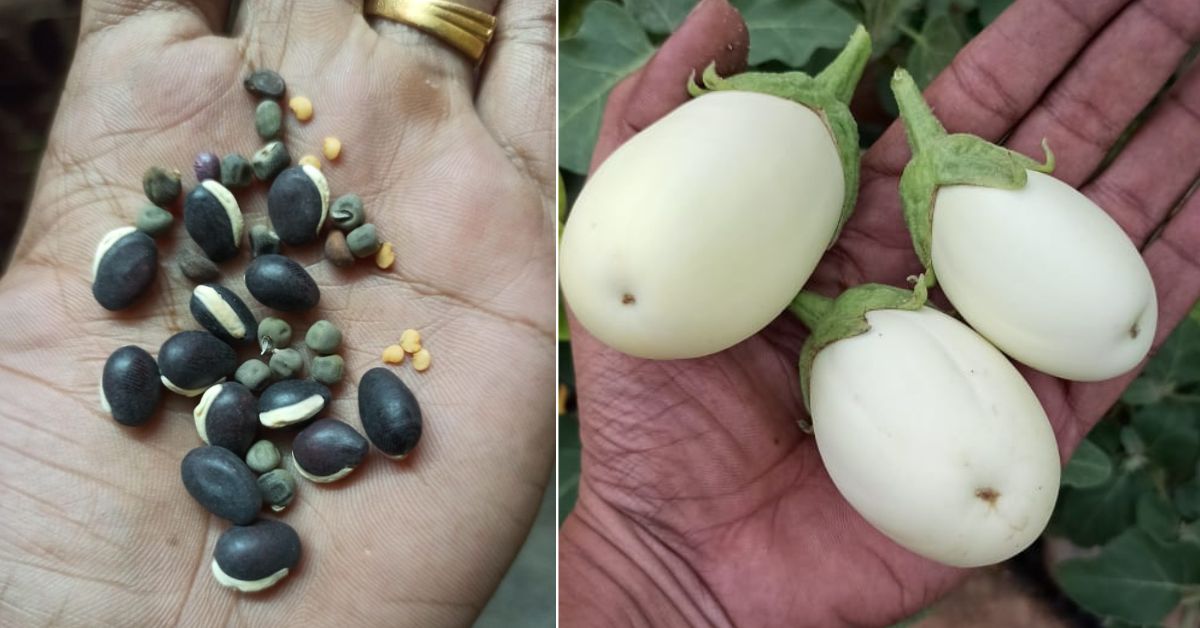
Interestingly, Dr Naveen along with a group of like-minded terrace gardeners conduct offline workshops in Chennai to promote organic farming. So far, he has reached out to more than 5,000 people across Tamil Nadu and helped them cultivate vegetables and fruits at home. Besides, he also gives these native seeds to his patients along with prescriptions to lead a healthier life.
Grow your veggies with these five secret techniques
Dr Naveen encourages everyone to embark on their organic farming journey — starting right at home with basic vegetables like tomatoes, lady’s fingers, and leafy greens such as spinach.
Drawing from the cherished teachings handed down by his grandfather, he shares a handful of techniques for cultivating vegetables and fruits effortlessly.
How to prepare a potting mix?
Dr Naveen suggests taking soil, cocopeat, and vermicompost in a ratio of 1:2:2. After mixing them, keep the potting mix in a pot or container for three to four days. Sprinkle water once every morning and evening.
“This will enhance microbial activities in the soil. You can sow seeds thereafter,” he adds.
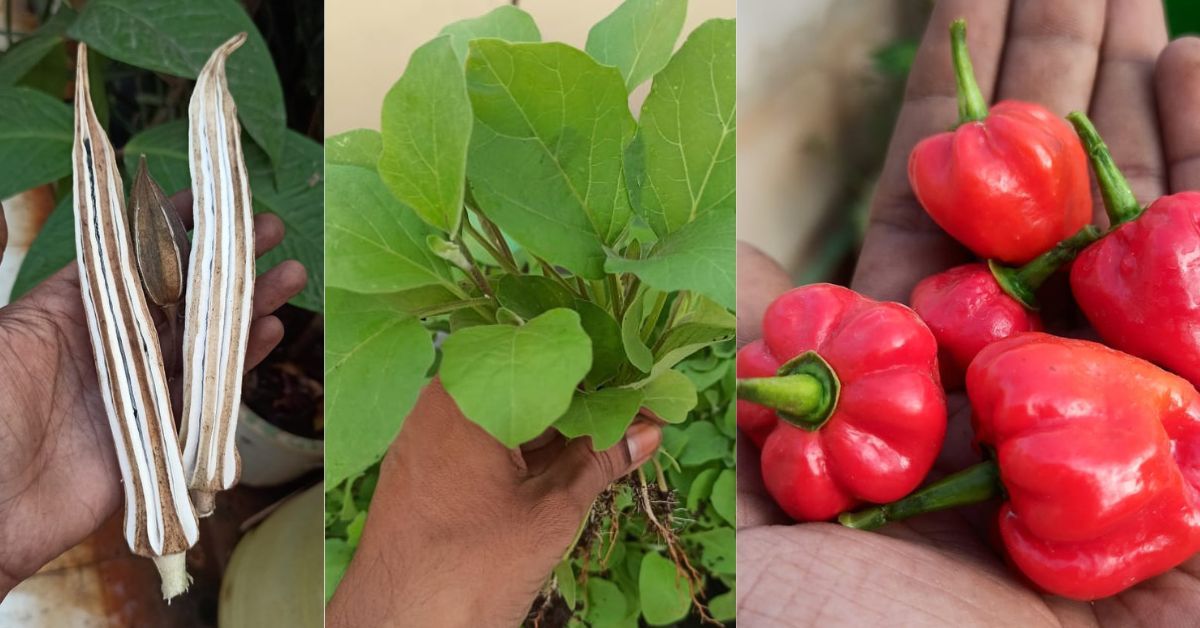
Treat seeds before sowing
To boost the process of germination and prevent future pest attacks and root diseases, Dr Naveen advises treating seeds with organic fertilisers and insecticides.
“Instead of water, soak seeds in panchgavya (organic concoction prepared by mixing five items obtained from cow like urine, ghee, dung, milk, and curd) for half an hour. Dry these seeds for an hour in a semi-shade area. These seeds will be ready for sowing the next day. If you do not have panchgavya, you can use five to seven days old buttermilk,” he adds.
The germination process, he says, differs for various vegetables. For instance, tomato seeds will germinate within seven days, brinjals within 10 days, chillies within 14 days, radish within four to five days, and spinach within three days.
Fertiliser from fish
Other than panchgavya, jeevamrita, and vermicompost, Dr Naveen prepares a unique organic fertiliser using fish to boost plant growth.
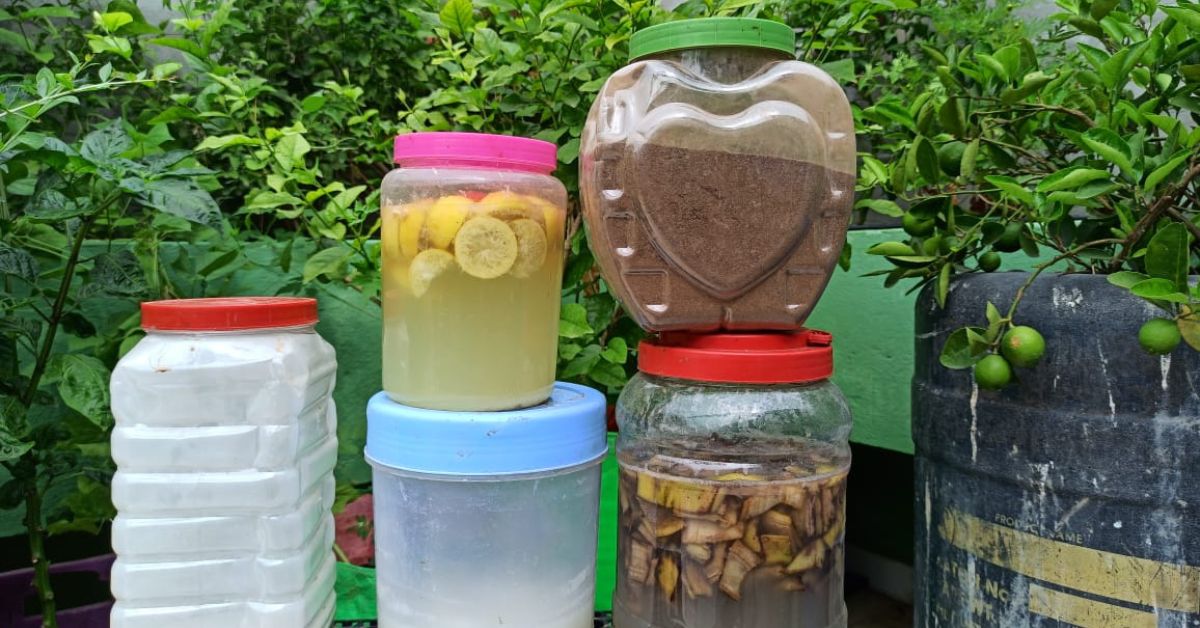
“Take one kg of fish in a clean plastic container and mix it with one kg of jaggery, handful of drumstick leaves, and two well-ripened bananas. Close the lid and keep it under shade. The fertiliser will be ready to use after 21 to 27 days. Rich in nitrogen, phosphorus, and potassium, this fertiliser helps boost flowering and fruiting in plants. It should be given once every 15 days,” he explains.
How to control pest attacks?
Although treating seeds before sowing reduces the chances of pest attacks, Dr Naveen says urban gardeners can spray neem oil on leaves every 10 days to prevent any pest attack.
How to store seeds for next season?
Dr Naveen says that one of the advantages of native varieties over genetically modified and hybrid seeds is that you do not need to purchase seeds every year. “You can scoop out seeds from vegetables and seeds after harvesting. Store them in a glass jar with some charcoal powder. It prevents seeds from being degenerated and increases their shelf life to 10 years,” he adds.
Edited by Pranita Bhat. All photos: Dr Naveen Kumar.
If you found our stories insightful, informative, or even just enjoyable, we invite you to consider making a voluntary payment to support the work we do at The Better India. Your contribution helps us continue producing quality content that educates, inspires, and drives positive change.
Choose one of the payment options below for your contribution-
By paying for the stories you value, you directly contribute to sustaining our efforts focused on making a difference in the world. Together, let's ensure that impactful stories continue to be told and shared, enriching lives and communities alike.
Thank you for your support. Here are some frequently asked questions you might find helpful to know why you are contributing?






